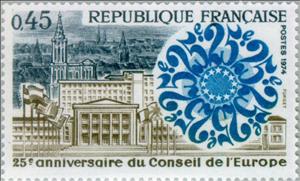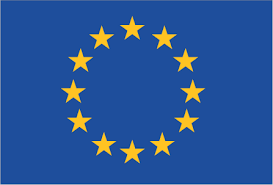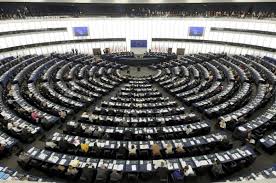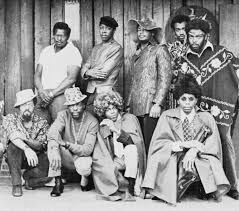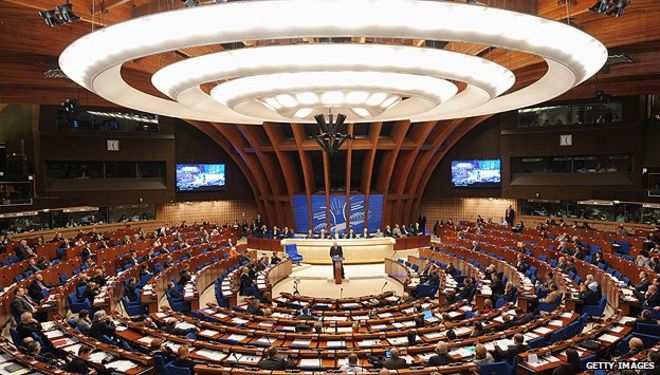Stamp: 25th anniversary of the Council of Europe (France 1974)
25th anniversary of the Council of Europe (France 1974)
06 May (France ) within release Event goes into circulation Stamp 25th anniversary of the Council of Europe face value 0.45 French franc
| Stamp 25th anniversary of the Council of Europe in catalogues | |
|---|---|
| Yvert et Tellier: | Yt:FR 1792 |
| Michel: | Mi:FR 1872 |
Stamp is horizontal format.
Stamp 25th anniversary of the Council of Europe it reflects the thematic directions:
An office is a space where the employees of an organization perform administrative work in order to support and realize the various goals of the organization. The word "office" may also denote a position within an organization with specific duties attached to it (see officer or official); the latter is an earlier usage, as "office" originally referred to the location of one's duty. In its adjective form, the term "office" may refer to business-related tasks. In law, a company or organization has offices in any place where it has an official presence, even if that presence consists of a storage silo, for example, instead of a more traditional establishment with a desk and chair. An office is also an architectural and design phenomenon, including small offices, such as a bench in the corner of a small business or a room in someone's home (see small office/home office), entire floors of buildings, and massive buildings dedicated entirely to one company. In modern terms, an office is usually the location where white-collar workers carry out their functions.
The European Union (EU) is a supranational political and economic union of 27 member states that are located primarily in Europe.The Union has a total area of 4,233,255 km2 (1,634,469 sq mi) and an estimated total population of over 448 million. The EU has often been described as a sui generis political entity (without precedent or comparison) combining the characteristics of both a federation and a confederation
The Europa postage stamp (also known as Europa - CEPT until 1992) is an annual joint issue of stamps with a common design or theme by postal administrations of member countries of the European Communities (1956-1959), the European Conference of Postal and Telecommunications Administrations (CEPT) from 1960 to 1992, and the PostEurop Association since 1993. Europe is the central theme. EUROPA stamps underlines cooperation in the posts domain, taking into account promotion of philately. They also build awareness of the common roots, culture and history of Europe and its common goals. As such, EUROPA stamp issues are among the most collected and most popular stamps in the world. Since the first issue in 1956, EUROPA stamps have been a tangible symbol of Europe’s desire for closer integration and cooperation.
The European Parliament (EP) is one of the legislative bodies of the European Union and one of its seven institutions. Together with the Council of the European Union (known as the Council and informally as the Council of Ministers), it adopts European legislation, following a proposal by the European Commission. The Parliament is composed of 705 members (MEPs), due to rise to 720 after the June 2024 European elections. It represents the second-largest democratic electorate in the world (after the Parliament of India), with an electorate of 375 million eligible voters in 2009.
In modern politics, and history, a parliament is a legislative body of government. Generally, a modern parliament has three functions: representing the electorate, making laws, and overseeing the government via hearings and inquiries. The term is similar to the idea of a senate, synod or congress and is commonly used in countries that are current or former monarchies. Some contexts restrict the use of the word parliament to parliamentary systems, although it is also used to describe the legislature in some presidential systems (e.g., the Parliament of Ghana), even where it is not in the official name.
The Council of Europe (CoE; French: Conseil de l'Europe, CdE) is an international organisation with the goal of upholding human rights, democracy and the rule of law in Europe. Founded in 1949, it brings together 46 member states with a population of approximately 675 million as of 2023; it operates with an annual budget of approximately 500 million euros
A building or edifice is a structure with a roof and walls standing more or less permanently in one place, such as a house or factory. Buildings come in a variety of sizes, shapes and functions, and have been adapted throughout history for a wide number of factors, from building materials available, to weather conditions, to land prices, ground conditions, specific uses and aesthetic reasons. Buildings serve several needs of society – primarily as shelter from weather, security, living space, privacy, to store belongings, and to comfortably live and work. A building as a shelter represents a physical division of the human habitat (a place of comfort and safety) and the outside (a place that at times may be harsh and harmful).
